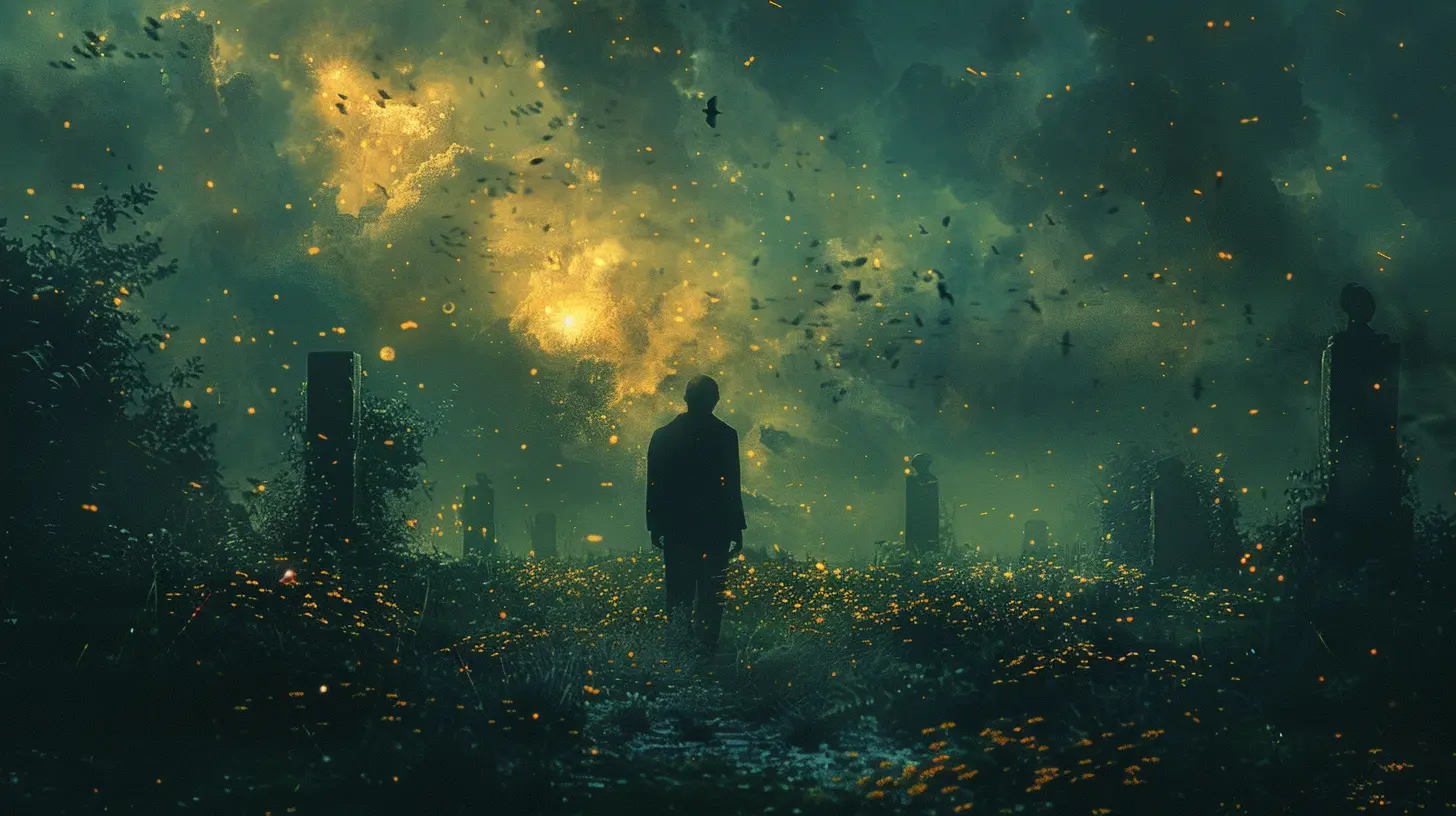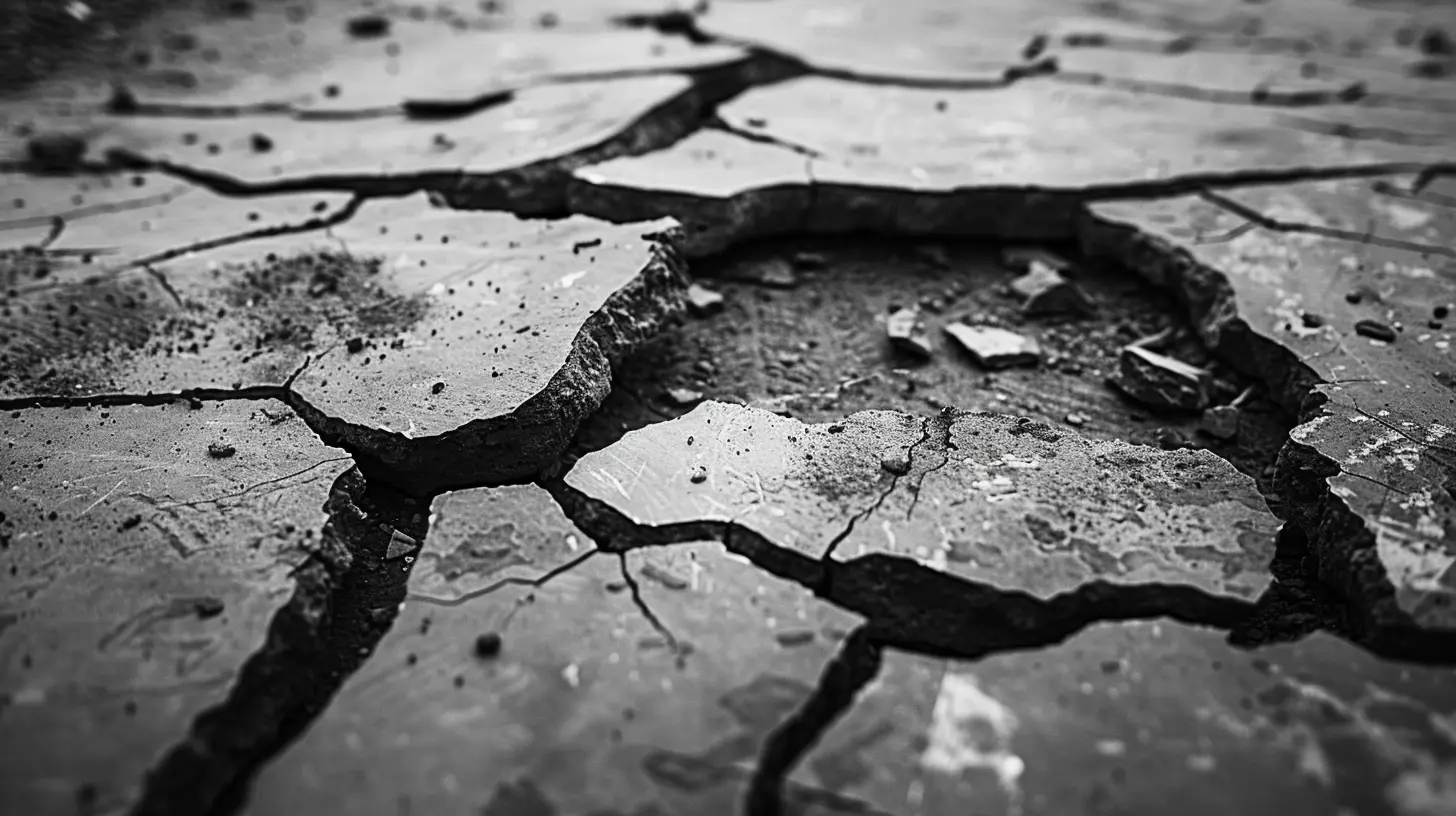Surviving the First Year After a Major Loss
30 September 2025
Losing someone or something important hits differently. It’s like a giant emotional earthquake that shakes every part of your life. Whether it's the death of a loved one, a breakup, the end of a friendship, or even losing a job you've poured yourself into — loss is never easy. And surviving that first year? That can feel like you're stuck in a storm with no umbrella.
The first 12 months after a major loss are full of ups and downs. One moment you're okay, the next, you're crying in the grocery store because you hear a song that reminds you of them. Sound familiar? You're not alone.
Let’s talk honestly about what it's like to navigate that painful first year and how you can actually get through it — one breath, one step, one day at a time.

Why the First Year Hurts the Most
The first year is like walking through a fog you can’t shake. Time drags, yet everything moves too fast. You're expected to get "back to normal," but normal left the building the moment your loss happened.So, why is it so hard?
Well, think about it — every milestone, holiday, or regular Tuesday brings a new reminder that things have changed. That "first" Christmas without them. The birthday they’re not around to celebrate. Even just waking up in the morning and remembering they’re gone can knock the wind out of you.
The first year isn’t just about missing someone — it’s about re-learning how to live without them. And that’s a process.

Grief Isn’t Linear — And That’s Okay
If you think grief follows a set of neat little stages—like denial, anger, bargaining, depression, and acceptance—you’re not alone. That model’s everywhere. But real-life grief is way messier than that. It doesn’t follow a schedule. One day you’re laughing, the next you can’t get out of bed. That’s normal. Really.You might feel like you’re moving backwards. You’re not. Healing isn’t a ladder — it’s more like riding a roller coaster in the dark. There will be loops, dips, and sudden turns you didn’t see coming. Be kind to yourself during the ride.

What No One Tells You About Grieving
Here’s the truth: people get uncomfortable around grief. You might notice your social circle shrinking. Some friends might disappear because they don’t know what to say. Others might push toxic positivity like, “At least they’re in a better place.”But here's the thing — your grief is valid. Whether people get it or not. You don’t need to rush your healing to make others comfortable.
And don’t be surprised if the emotions hit harder when things finally quiet down. Often, the shock wears off after a few weeks or months, and that's when reality sinks in. It’s like the numbness fades, and the pain gets real.

Coping Strategies for Day-to-Day Survival
So how do you actually survive those long, painful days? There’s no one-size-fits-all answer, but some things help more than others.1. Feel It to Heal It
You’ve probably heard this cliché — but it’s true. Suppressing your emotions is like shaking a soda bottle and hoping it doesn’t explode. Don’t try to “be strong” all the time. It’s okay to cry. It’s okay to scream. It’s okay to feel numb.Let your emotions come. Talk to someone. Write it down. Scream into a pillow. Just don’t bottle it up.
2. Build a New Routine
Loss turns your world upside down. One way to find some stability is to create a new daily routine. It doesn’t have to be packed with productivity. Even small things help — making your bed, drinking water, taking a short walk.You're not trying to replace the old life — just building a foundation for the new one.
3. Say Yes to Help
Grief makes you feel isolated — like you're stranded on an island. But you don’t have to go through it alone. Say yes when someone offers to help — even if it’s just cooking a meal or sitting silently with you. It’s okay to lean on others.And if you don’t have people around? Seek out a support group or therapist. Talking to someone who understands can be a lifeline.
4. Find Small Joys
When you’re grieving, the idea of feeling joy might seem almost... wrong. Like you’re betraying the person you lost. But feeling happiness again doesn't mean you’ve forgotten them. It means you're human.Watch a funny show. Hug your dog. Listen to music that lifts you up. Joy won’t erase the grief, but it can give your heart a little breathing room.
5. Move Your Body
You don’t have to run a marathon (unless running helps you cope — then go for it). But movement helps. Go outside. Stretch. Dance in your living room. Exercise releases endorphins, and even if they don’t fix the pain, they can soften it a bit.6. Set Boundaries
It’s okay to say no. Don’t feel guilty about skipping a party or declining an invitation if you’re not ready. Grief is exhausting, and protecting your energy is part of healing.You’re allowed to take space — even from people you love.
Getting Through the “Firsts”
The first birthday. The first wedding anniversary. The first holiday season. These days carry a special kind of sting. Anticipation can sometimes feel worse than the day itself.So how do you deal?
- Plan ahead. Decide what you want to do — maybe honor the person with a ritual, or choose to do something completely different.
- Give yourself options. You’re allowed to change your mind last minute.
- Lower the bar. It’s okay to just survive the day. You don’t have to thrive.
Remember: these “firsts” don’t have to be perfect. They just have to be survivable.
When to Seek Professional Support
Grief is natural, but sometimes it gets complicated. If you're stuck in a place where functioning feels impossible, or if depression takes over your life for more than a few weeks, it might be time to talk to a mental health professional.Therapy isn’t admitting defeat — it’s choosing to take care of yourself.
Signs you might need extra support:
- You're struggling to eat, sleep, or take care of basic needs.
- You're isolating yourself completely.
- You're having thoughts of hopelessness, or worse, not wanting to go on.
- It’s been months, and nothing seems to lift you out of the fog.
Please, don’t wait to hit rock bottom. There’s no shame in asking for help.
Grief Changes You — But It Doesn’t Define You
The pain might never fully go away, and honestly, that’s okay. It’s a sign of how deeply you loved. But that loss doesn’t have to be your whole story.Over time, the sharp edges will soften. You’ll laugh again — and it won’t feel forced. You’ll find new meaning, new ways to carry the memory with you. Like a scar, grief may always be there. But scars tell stories of healing, survival, and strength.
You’ll never be the same. But you can still be whole — just a different version of whole.
What You Can Do Right Now
If you’re in that painful first year, here’s what you can do today:- Breathe. Seriously, just pause and take a deep breath.
- Remind yourself that surviving today is enough.
- Pick one small act of self-care. A glass of water. A warm shower. A walk outside.
- Reach out to someone you trust. Even just to say, “I’m having a hard day.”
- Write down three things you miss — and one thing you’re grateful for.
You’re not weak for feeling broken. You're strong for showing up.
You Are Not Alone
Grief is the price we pay for love, and while it’s steep, you don’t have to carry it all by yourself. Every tear you cry is a step forward, not a step back. Every hard day survived is a quiet victory.Go easy on yourself. Healing isn’t about timelines or benchmarks — it’s about finding your way back to yourself, at your own pace.
You’ll make it through this year. Not because time magically fixes things, but because you’re more resilient than you think. And one day, the pain won’t feel like a wave crashing over you — it’ll be more like a tide that rises and falls, and you’ll know how to float.
all images in this post were generated using AI tools
Category:
Grief And LossAuthor:

Eliana Burton
Discussion
rate this article
1 comments
Olivia Roth
Thank you for this insightful article. Your practical tips on coping strategies and emotional support are invaluable for anyone navigating the difficult journey of grief.
October 17, 2025 at 3:30 AM

Eliana Burton
Thank you for your kind words! I'm glad you found the tips helpful.


